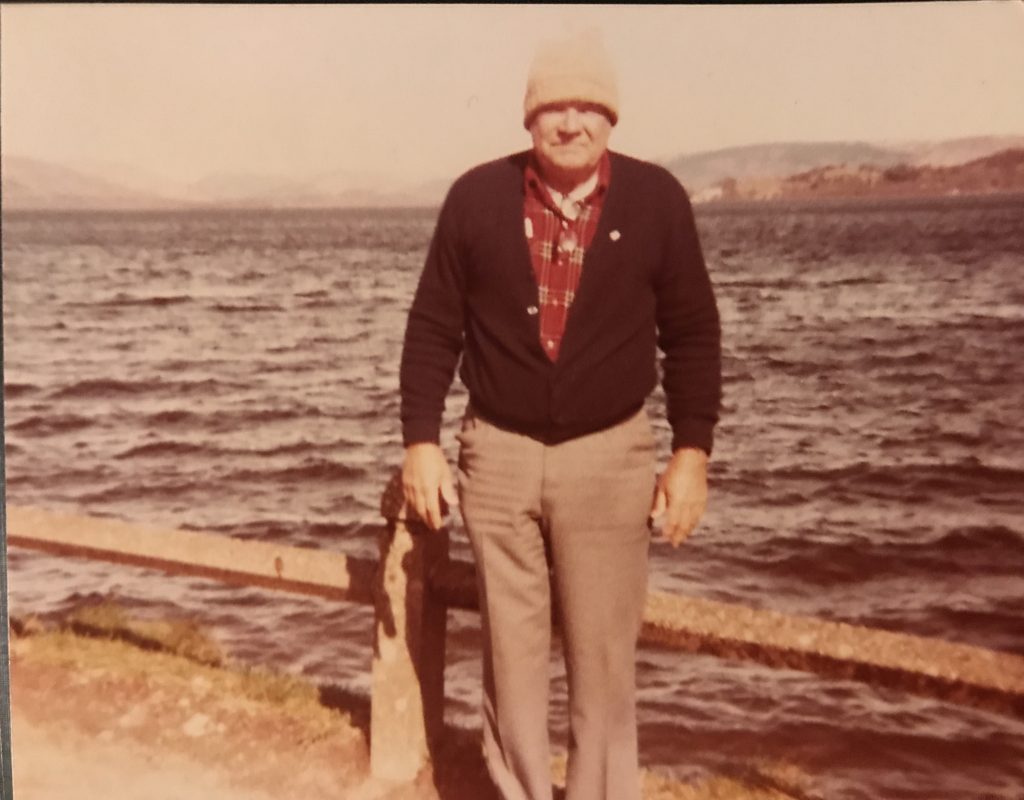BY SAUL BERRIOS-THOMAS | STAFF WRITER
Big John Tripson from Mission was always in the center of the action, whether he was on the line during a football game crashing into his opponents or pulling injured soldiers out of the water during the Invasion of Normandy.
Tripson grew up in Mission and played for the Eagles. He played all four years with Bill Landry, Tom’s brother, in the 1930s. He was part of an Eagles team that went undefeated.
Tripson, along with nine other inductees, will be enshrined in the RGV Sports Hall of Fame at the 31st annual banquet Saturday at the Boggus Ford Events Center in Pharr.
The event begins with an informal reception for the inductees at 4 p.m. followed by a catered meal at 5 p.m. and the program at 6 p.m. Banquet tickets may be purchased through Wednesday by calling (956) 624-5241.
Tripson’s play at Mission High earned him a full ride to Mississippi State.
“Georgetown and Boston College, in those years, had swapped places between No. 1 and No. 2 often,” Mark Tripson, John’s eldest son, said. “They were both at the top.”
In 1937, Tripson’s team played Georgetown in the first Orange Bowl held in Burdine Stadium, the same stadium that would eventually be known simply as the Orange Bowl. At that time, the stadium seated 23,000. When it was demolished in 2007, it held 72,000.
Tripson’s team came out victorious.
“For upstart Mississippi (State) to beat them, that was big,” Mark said. “We went to the 50th reunion of that game, and the players from Georgetown were still mad that they got beat.”
Tripson tried to get Tom Landry to join him at Mississippi State, but to no avail. Bill was one of many soldiers lost in World War II.
After his college career, Tripson was drafted by the NFL’s Detroit Lions. He played spectacular during his rookie year, earning a first-team NFL All-Pro selection, a Pro Bowl selection and the Rookie of the Year award.
Following his rookie year, however, he found himself in a different draft.
“At the beginning of the war they were drafting Army, Marines and Navy,” Mark Tripson said. “He knew somebody, or, I don’t know how he did it, but he wanted to be in the Navy. Not that he knew anything about boats — he told us he was ‘sea sick for four years’ — but he felt it was better than being a foot soldier.”
Tripson had many close encounters during his Naval career, but like with almost anything he did, he was good at his work right away.
During his service, he served in Northern African, Southern France and Normandy.
The story of Tripson’s time leading up to D-Day was chronicled by his squad mate, Ira Wolfert, to Reader’s Digest:
The war reached out a giant paw and struck dead ahead of us. There was a big explosion. Grey smoke and white water rose hundreds of feet into the air. Out of its centre a mortally stricken minesweeper plunged and tilted, bleeding oil in spouts as if an artery had been severed. Then it righted itself and lay quietly, with the big, gaseous-looking bubbling that ships make when they die.
Standing by to pick up survivors we came first to those who had been blown farthest by the explosion. They were all dead. ‘Leave the dead and take the living first,’ cried Lieutenant John Tripson. And then, from all over the sea around us, sounding small and childlike in the wild world of waters, came cries of ‘Help! Help!’ and one startling, pathetic cry of ‘Please help me!’
Big John Tripson is a Mississippi boy who used to play football for the Detroit Lions. His strength came in handy now. The wet boys in the sea with all they had on them weighed up to 300 pounds. Big John reached out and scooped them up with one hand, holding on to the boat with the other. We fished six out of the water, two of them uninjured, taking only the living and leaving the dead awash like derelicts in the unheeding sea.
Tripson said the proudest day of his life was the day the U.S. dropped the atomic bombs on Hiroshima and Nagaski.
“(Tripson and his unit) were someplace I don’t know where, I think in California, practicing for the invasion of Japan,” Mark Tripson said of where John was when he heard the news. “They had already told him they were going to lose a million men in the first week. He had already been through North Africa, Sicily, southern France and Normandy. He just felt like the odds were against him.”
Tripson served in the precursor to the Navy Seals, known as the Scouts and Raiders. Both were subdivisions of the UDT, or Underwater Demolition Team.
During his service, he was stationed at Fort Pierce, Fla. During that time he met his wife Barbara, who was born and raised in Vero Beach, Fla.
After the war, Tripson moved to Vero Beach and never left. He bought his wife’s family’s dairy farm and grew it from 120 cattle to over 500 cattle and 40 milk trucks.
Tripson passed away in 1997 and Barbara passed in 2003. Together, they had four children: Logan, Karen, Mark and Jens.
“He died as he lived,” Mark said. “They had a party up at their house in North Carolina. He said this has been wonderful, went in, and went to sleep and died.
“He was a good man. He wanted to do right by his family. He believed in doing right. He was driven to be successful, and he was.”
sberrios-thomas @themonitor.com

